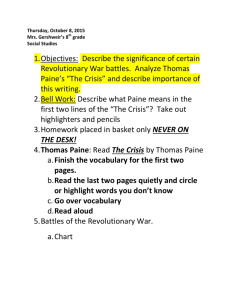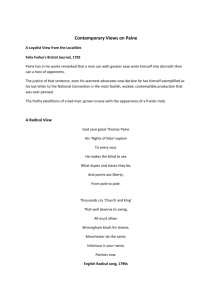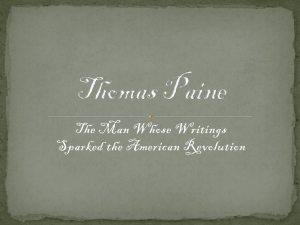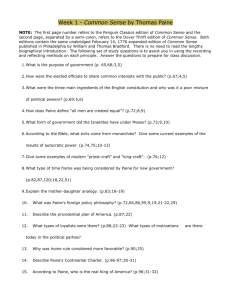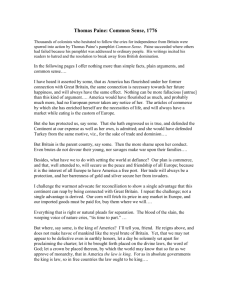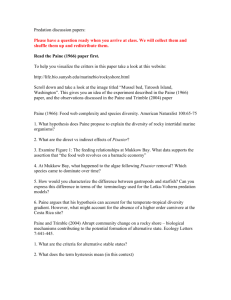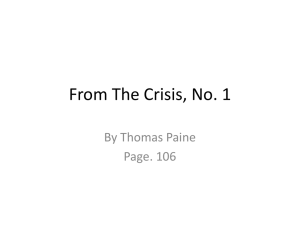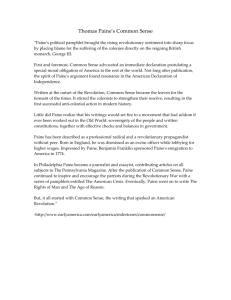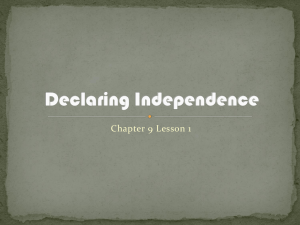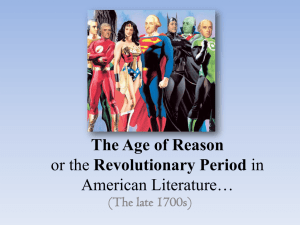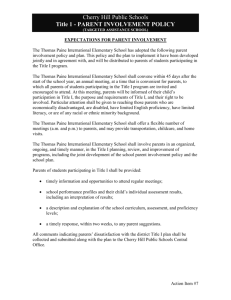Tom Paine / Rhetoric / Rhetorical Strategies
advertisement
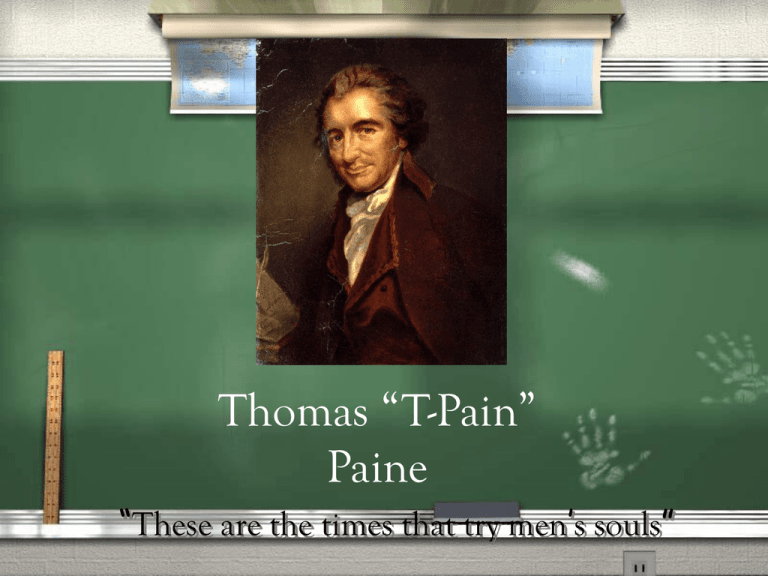
Thomas “T-Pain” Paine “These are the times that try men’s souls” Read Paine’s famous pamphlet, Crisis No. 1 (found on pp 95-96 of your textbook) Paine’s Rhetorical Approach Scan “The Crisis” and the handout on rhetoric. Identify a few rhetoric strategies or devices Paine employs in this speech, and then explain how these strategies might strengthen his message. In other words, why has he chosen to employ these strategies? Where do we see evidence of Paine making a logical appeal? How about an emotional appeal? How about an ethical appeal? The Aphoristic Style Aphorism ~ a principal or general truth expressed tersely in a short, memorable form; a proverb. Ben Franklin wrote (or wrote down) many aphorisms, including: “God helps them that help themselves.” “A small leak will sink a great ship.” “Early to bed and early to rise, makes a man healthy, wealthy, and wise. …more on aphorisms Aphorisms are often made memorable by poetic elements such as rhythm, rhyme, assonance, and alliteration. Consider these elements in Paine’s opening line from The Crisis, Number 1: “These are the times that try men’s souls.” Rhetorical Devices Argument by analogy ~ when a writer compares two similar situations, implying that the outcome of one will resemble the outcome of the other. Anecdotes ~ when a writer describes a short scene or story, drawn from personal experience, to help make his point. In Your Notes… Aphorism: Select at least one aphoristic statement from The Crisis (other than the first sentence); describe what elements help make it memorable. Analogy: What conclusion can we draw from Paine’s analogy between the political situation in America and the case of a thief who breaks into someone’s house? What other analogies does Paine draw? Anecdote: What point does Paine make by telling his readers about the tavernkeeper in Amboy? Religious Language? Like many writers before him, Paine uses religious language in this pamphlet on a number of occasions. Where does he do so? How is this similar to/different than the use of religious language in other texts we’ve read?
